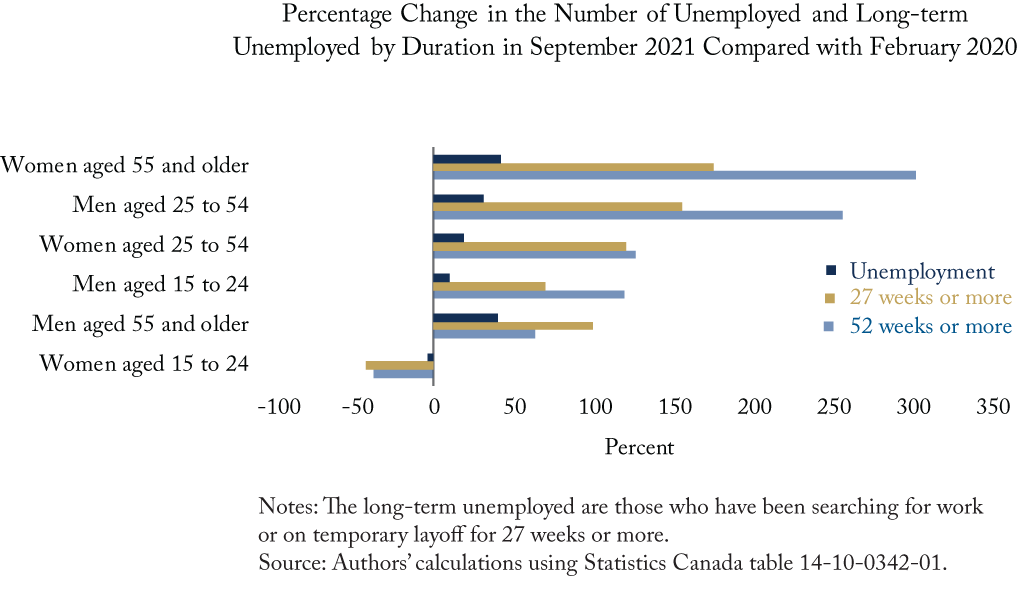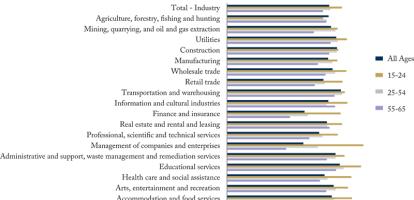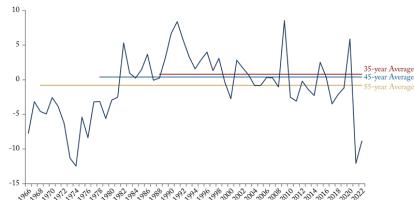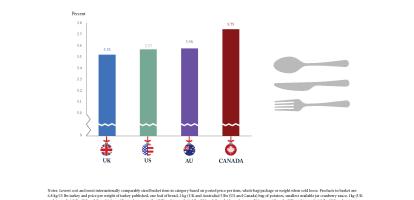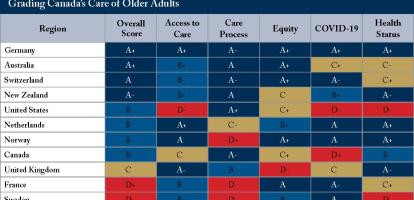COVID-19 has had severe impacts on unemployment and resulted in unprecedented long-term joblessness which is more worrisome.
Between February and May 2020, unemployment increased 128 percent. More than 80 percent of unemployment has recovered since then, with unemployment in September 2021 being 24 percent higher than in February 2020. In contrast, in September 2021, long-term unemployment (the number of people unemployed for 27 weeks or more) was 124 percent above the pre-pandemic level in February 2020, and the change varied substantially across demographic groups. A sizeable share of the long-term unemployed in September 2021 were unemployed for 52 weeks or more (63 percent) and prime-working-age adults (59 percent).
The long-term effects of COVID-19 on local labour market outcomes will become more apparent with time. There is a significant risk, however, that the pandemic could aggravate social and economic inequalities, since its employment effects have fallen disproportionately on certain population groups (such as women and Indigenous peoples) and some sectors (such as tourism and hospitality).
In general, persons in long-term unemployment frequently experience limited employability, due to loss of skills, low educational attainment or the high costs of rebuilding these skills. Evidence shows, however, that adult education increases the chances of re-employment and reduces the length of unemployment.
As the Canadian labour market recovers from the pandemic, adult education will be pivotal in ensuring that individuals have the right tools to adapt to the new skills the market demands. Therefore, governments need to pursue a comprehensive adult education and training strategy involving public and private sector collaboration, targeted towards disadvantaged, low-skilled individuals and the long-term unemployed.
To learn more about our recommendations, read “The Skills Imperative: Workforce Development Strategies Post-COVID Canada”, by Parisa Mahboubi and Momanyi Mokaya.

